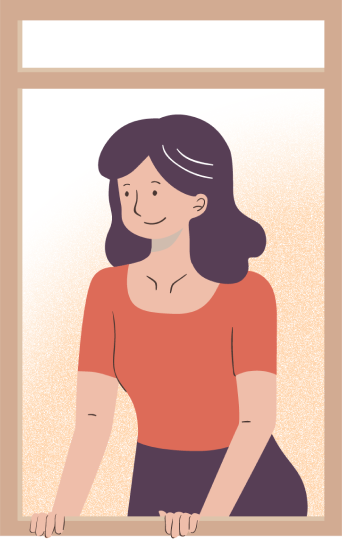FAQs on domestic helper home leave
What is domestic helper home leave?
Home leave (also called vacation leave) is a requirement by the Hong Kong Immigration Department for domestic helpers to return to their place of origin for at least 7 days during each employment contract. The domestic helper home leave requirement is meant to ensure that the migrant workers are able to go back home to their families at least one time per contract.
According to clause 13 of the Standard Employment Contract:
“Between contracts, unless with approval for extension of stay in Hong Kong, a domestic helper shall return to her place of origin for home/vacation leave for not less than 7 days. This leave is at the expense of the employer.”
When should a domestic helper home leave be taken?
The domestic helper home leave is required for workers whose visa is processed locally in Hong Kong. Processing a visa locally in Hong Kong is only applicable to the following cases of domestic helpers changing employers and domestic helpers renewing their contract with the same employer:
- Contract renewal (Same employer)
- Finished contract (Changing employers)
- Special case processing (Changing employers)
Is domestic helper home leave different from annual leave?
Yes, though it can be quite confusing to understand the difference, home leave is different from annual leave. You can read about domestic helper annual leave in this article.
Can domestic helper home leave be combined with domestic helper annual leave?
Yes, employers may choose to combine a domestic helper home leave with domestic helper annual leave. Depending on the employer and the domestic helper’s needs, a mutual agreement should be made for any home leave and annual leave plans.
What are the family’s needs for child, elderly or pet care? What are some necessary duties the domestic helper is responsible for? Is the domestic helper looking to spend more time with family? Are the required flight expenses a concern to the domestic helper? Strive to compromise on the best arrangement possible. By being open with what your priorities are, this can help to strengthen the foundation of your working relationship.
Domestic helper home leave options
The Hong Kong Immigration Department provides the employer and domestic helper with two home leave options ahead of signing the Standard Employment Contract.
1) Immediate home leave
If an immediate domestic helper home leave is chosen, a new, temporary visa will be issued to the domestic helper, and the helper would be required to leave Hong Kong within 7 days. The domestic helper will be automatically granted a full 2-year visa upon her return to Hong Kong after no less than 7 days of home leave.
For example, if the temporary visa is issued on November 1, 2024, the domestic helper will be required to return to their country of origin for at least 7 days, on or before November 8, 2024. Upon arrival to Hong Kong after November 15, 2024, the domestic helper will be granted the 2-year visa for the undertaken employment until November 15, 2026.
2) Deferred home leave
If the deferred home leave is chosen, a 1-year visa will be issued, in lieu of the domestic helper’s return to their place of origin within one year. Upon completion of the mandatory home leave period of no less than 7 days, the domestic helper will be granted the remaining full visa.
For example, if the 1-year visa is issued on November 1, 2024, the helper will get a one-year visa until November 1, 2025. The domestic helper will be required to return to their country of origin for at least 7 days, and re-enter Hong Kong on or before November 1, 2025. The domestic helper will be granted the remaining visa for the undertaken employment until November 1, 2026 upon their arrival to Hong Kong.
Is the domestic helper home leave considered paid time-off?
Domestic helper home leave can be paid or unpaid. This should be mutually agreed upon by the employer and the domestic helper at the time of signing the employment contract.
If an employer is renewing the contract with a domestic helper, they will be required to indicate whether the home leave will be paid or unpaid under clause 13 of the Standard Employment Contract.
Are employers required to pay for flight tickets for the domestic helper home leave?
Yes, the employer needs to pay for the domestic helper’s home leave flight tickets. According to the Standard Employment Contract, the employer is responsible for two flight tickets during each employment contract: one from the domestic helper’s place of origin to Hong Kong, and one from Hong Kong to the helper’s place of origin.
When the domestic helper’s visa is processed locally in Hong Kong, the helper is required to fulfil the home leave requirement. In that case, the previous employer should provide the helper with the home leave flight ticket (or payment in lieu of the flight ticket) back to their place of origin. The new employer is therefore responsible for the flight ticket from the helper’s place of origin back to Hong Kong.
Can domestic helper home leave be fulfilled by “exit to Macau”?
No, it is illegal for a domestic helper to exit to Macau instead of returning to their place of origin when fulfilling the home leave requirement. The home leave requirement is meant to ensure that migrant workers are able to visit their families at least one time per employment contract.
What if the contract is terminated before the domestic helper home leave?
In the case of an unfulfilled domestic helper home leave before contract termination, in addition to the regular termination entitlements, the employer should ensure that the domestic helper receives the necessary entitlements related to the domestic helper home leave requirements, including:
- Flight tickets and any local transportation fare to place of origin;
- Food and travel allowance ($100 per day of travel); and
- Wages in lieu of paid home leave (indicated in clause 13 of of the Standard Employment Contract).
Key factors to consider before a domestic helper home leave
If the domestic helper is looking to return home for an emergency, employers may wish to consider the following factors here. Similarly, when arranging the required domestic helper home leave, employers should consider:
- Duration: How long will the domestic helper be away for? Are there any factors that could potentially cause trip delays or extensions?
- Salary: Will the domestic helper home leave be paid time-off? If so, how will the salary payments be made?
- Expenses: What are some other potential expenses required for domestic helper home leave that the helper should be aware of?
- Communication: How would communication be arranged during the domestic helper home leave? What information should be provided and how often should there be communication?
- Contingency plans: Are there any arrangements in case of unexpected situations? Are there any options for temporary help or support in case of a prolonged absence of the domestic helper?
Last updated on August 11th, 2025

